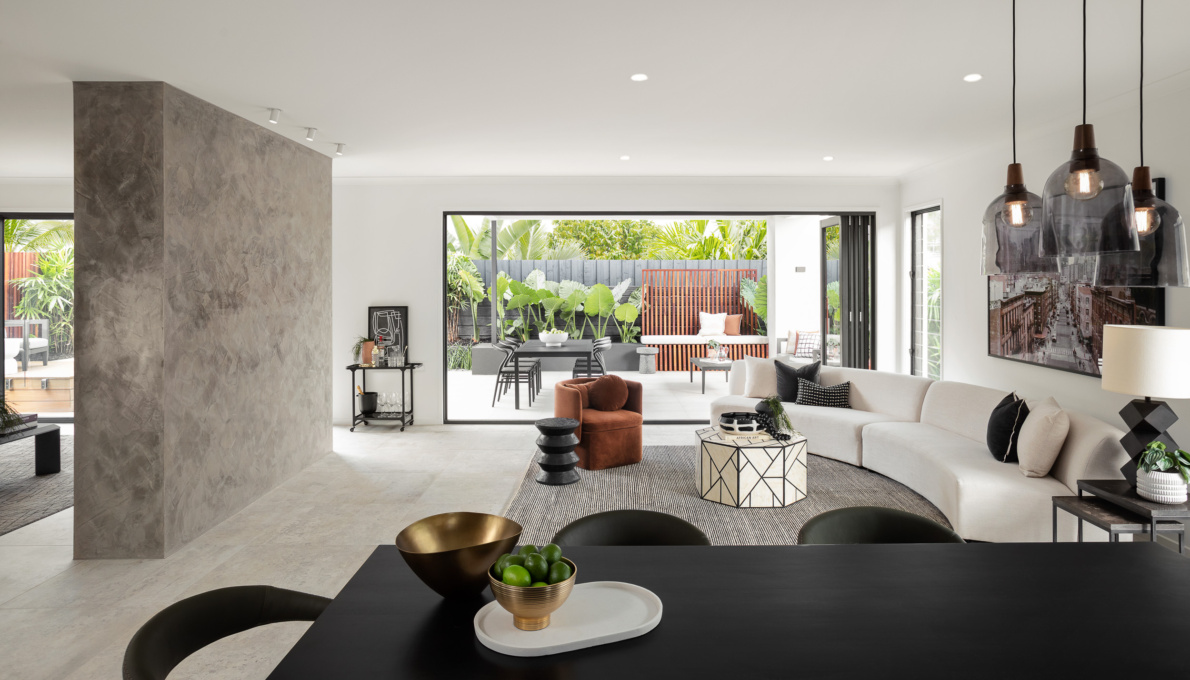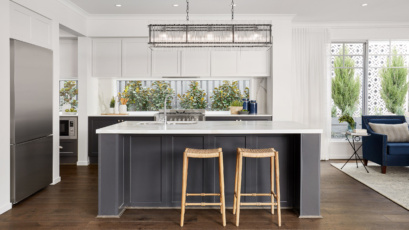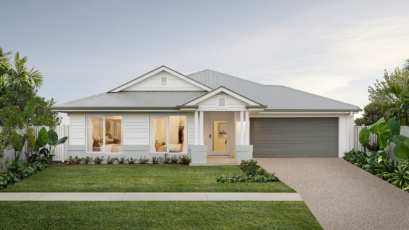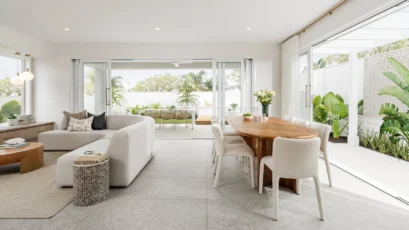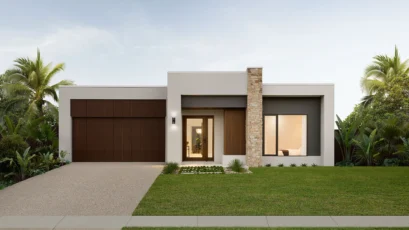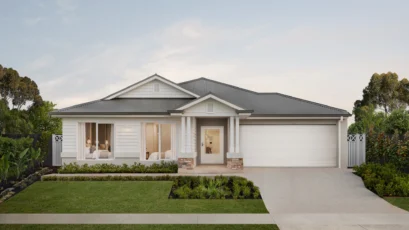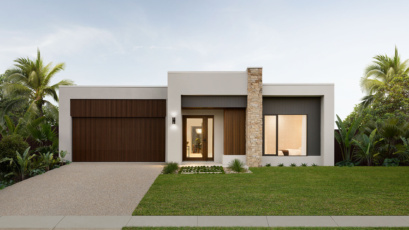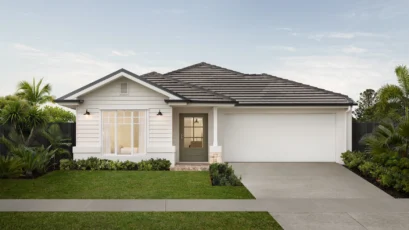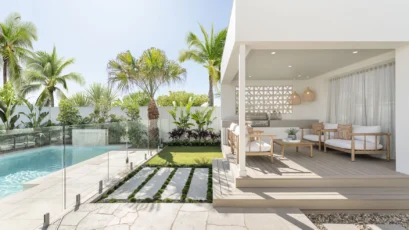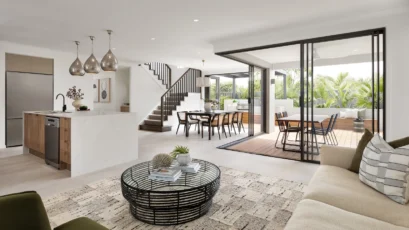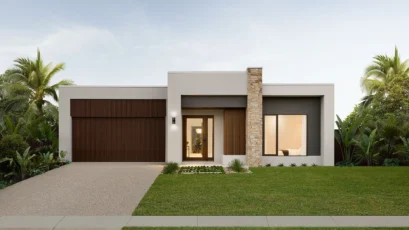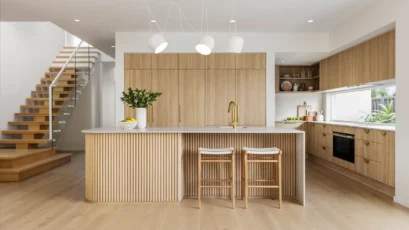InShort: Quick Highlights
- Embrace open spaces, clean lines, and natural materials to create a serene and clutter-free living environment.
- Design each room with functional intent to balance practicality and style without overwhelming the space.
- Use large windows and soft neutrals to fill your home with natural light and visual calm.
- Declutter often and adopt hidden storage solutions to keep surfaces clean and stress levels low.
- Choose timeless, quality furniture that complements minimalist home design and stands the test of time.
Minimalist Home, Maximum Impact
Minimalist home design is more than just a trend, it’s a lifestyle rooted in simplicity, calm, and purpose. Whether you’re building from scratch or refining your space, small design choices can lead to powerful results.
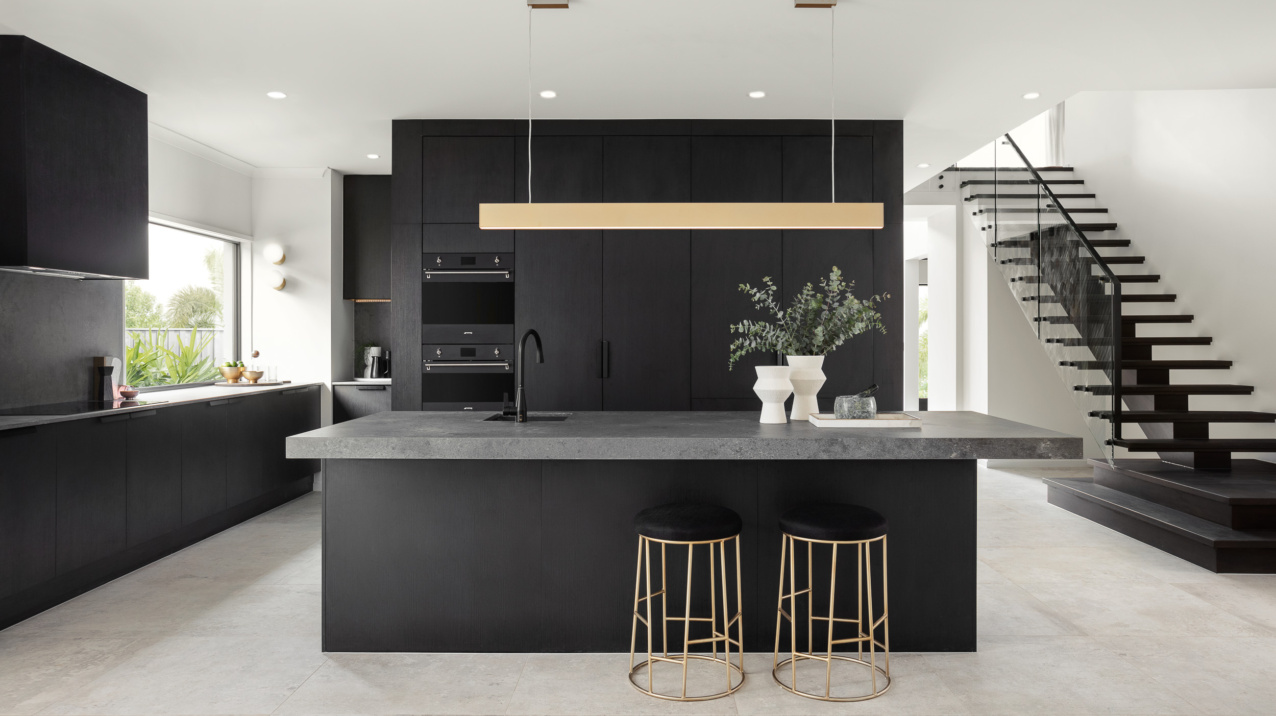
1. Start With a Thoughtful Layout
The foundation of any minimalist home begins with its layout. Spaces should feel open, not boxed in. An efficient floor plan allows for smooth movement and invites natural light into every corner.
- Prioritise open-plan living areas to maximise space and light
- Limit unnecessary walls or dividers to encourage flow and connection
- Choose a home design that supports seamless transitions between rooms
Minimalist homes often blur the line between indoor and outdoor living, using open-plan kitchen, dining, and alfresco areas as the heart of the home.
2. Neutral Doesn’t Mean Boring
A cohesive colour palette is essential for a minimalist aesthetic. Neutral tones offer versatility, timelessness, and a calming visual flow.
- Stick to three core tones across walls, floors, and furnishings
- Use texture through timber, stone, or fabric to add depth and warmth
- Browse our design collections to see how neutrals can be beautifully styled
Neutrals also make spaces feel larger and help draw attention to architectural features or artwork without visual competition.
3. Function Over Frills
Minimalism doesn’t mean giving up comfort, it means designing smarter. Every item should serve a purpose and contribute to a clutter-free environment.
- Choose multi-functional furniture: storage beds, fold-away desks, smart cabinetry
- Invest in high-quality kitchen and laundry joinery that offers both beauty and utility
- Let each room reflect its core purpose without excessive accessories
Well-integrated storage, like concealed shelving and built-in wardrobes, makes it easy to keep your home organised and serene.
4. Let the Light In
Light is central to minimalist living. A well-lit home feels more spacious and more peaceful.
- Orient key living zones north-facing to maximise natural light
- Use sheer curtains or no window treatments for a brighter look
- Opt for wide sliding doors in your home design plan to connect indoor and outdoor spaces seamlessly
When natural light is limited, consider strategically placed mirrors or recessed lighting to amplify the space.
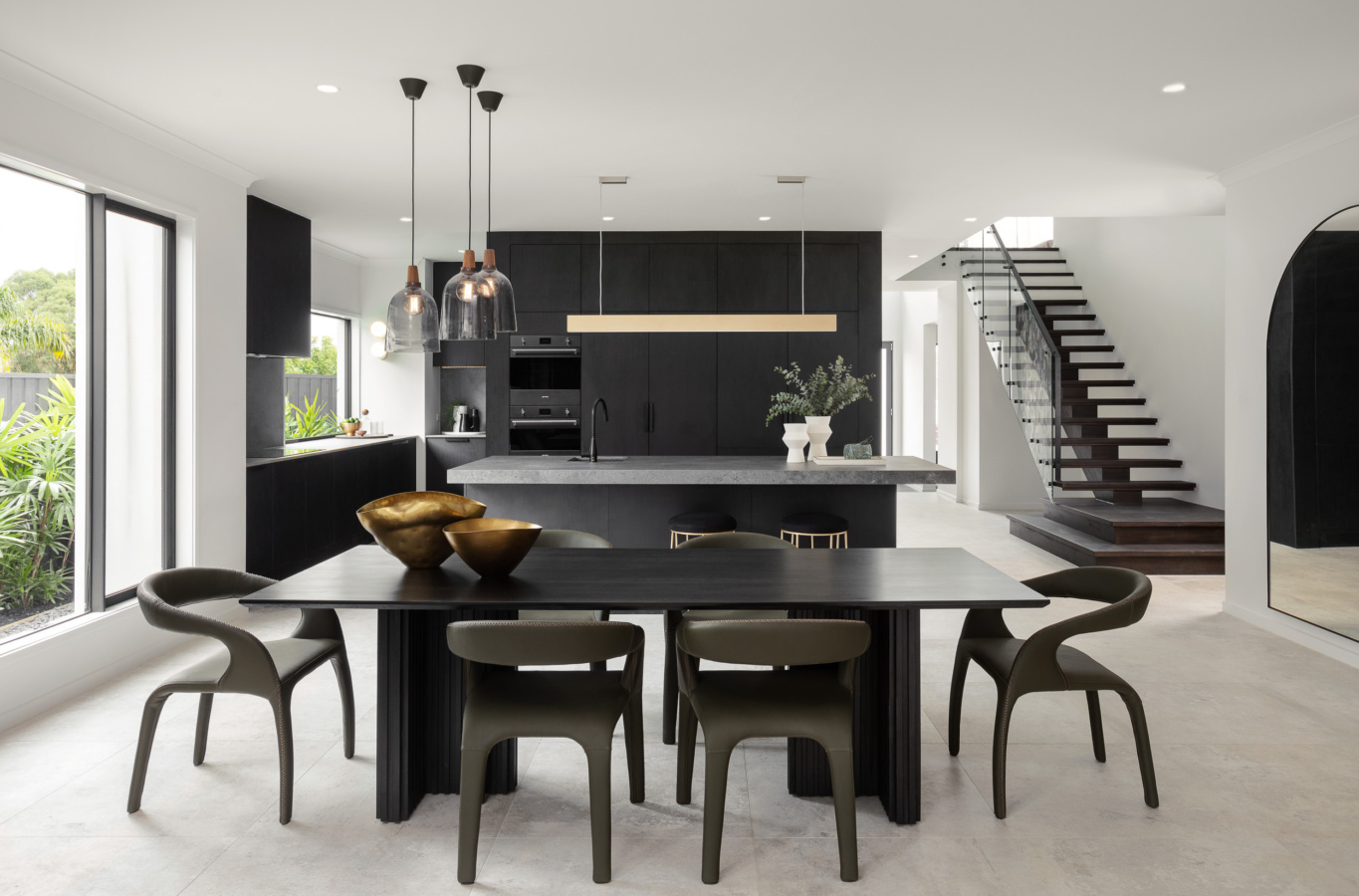
5. Keep Decor Intentional
Decor should enhance, not overwhelm. A minimalist approach means choosing pieces with intention and letting them breathe.
- Select a few large statement pieces rather than multiple small ones
- Add greenery through indoor plants like snake plants or peace lilies for natural texture
- Display meaningful personal items, artwork, books, heirlooms, on open shelves or simple surfaces
Less decor means more focus on the room’s structure and design, allowing the architecture to shine.
6. Invest in Quality Over Quantity
Furnishings in a minimalist home are fewer but better. Timeless design choices reduce the need for frequent upgrades.
- Look for quality finishes in cabinetry, flooring, and bathroom fixtures
- Choose enduring materials like timber, linen, leather, and stone
- Use our pricing tools to plan your budget with transparency and confidence
When everything you bring in has value and longevity, your space stays beautiful for years.
7. Common Minimalist Design Mistakes to Avoid
Getting minimalism right takes planning. Avoid these common pitfalls to maintain both form and function:
- Overusing white without adding warmth through texture or tone
- Choosing furniture that’s too small, minimal doesn’t mean miniature
- Ignoring storage needs, which leads to visible clutter
- Adding decor “just to fill space” instead of leaving areas intentionally bare
- Confusing minimalism with sterility; minimal should still feel lived-in and inviting
If you’re unsure where to start, Coral’s home design experts can guide you in finding a layout and style that supports a minimalist vision without compromising comfort.
Key Takeaways
- Open-plan layouts and seamless flow create calm, connected spaces perfect for a minimalist home lifestyle.
- Light-filled rooms with neutral palettes make your home feel spacious, fresh, and visually balanced every day.
- Smart storage solutions help maintain a clutter-free look without sacrificing practicality or daily convenience.
- Intentional decor choices and statement pieces allow personality to shine while preserving visual harmony.
- Investing in timeless materials ensures your minimalist home remains functional, stylish, and future proof for years to come.

